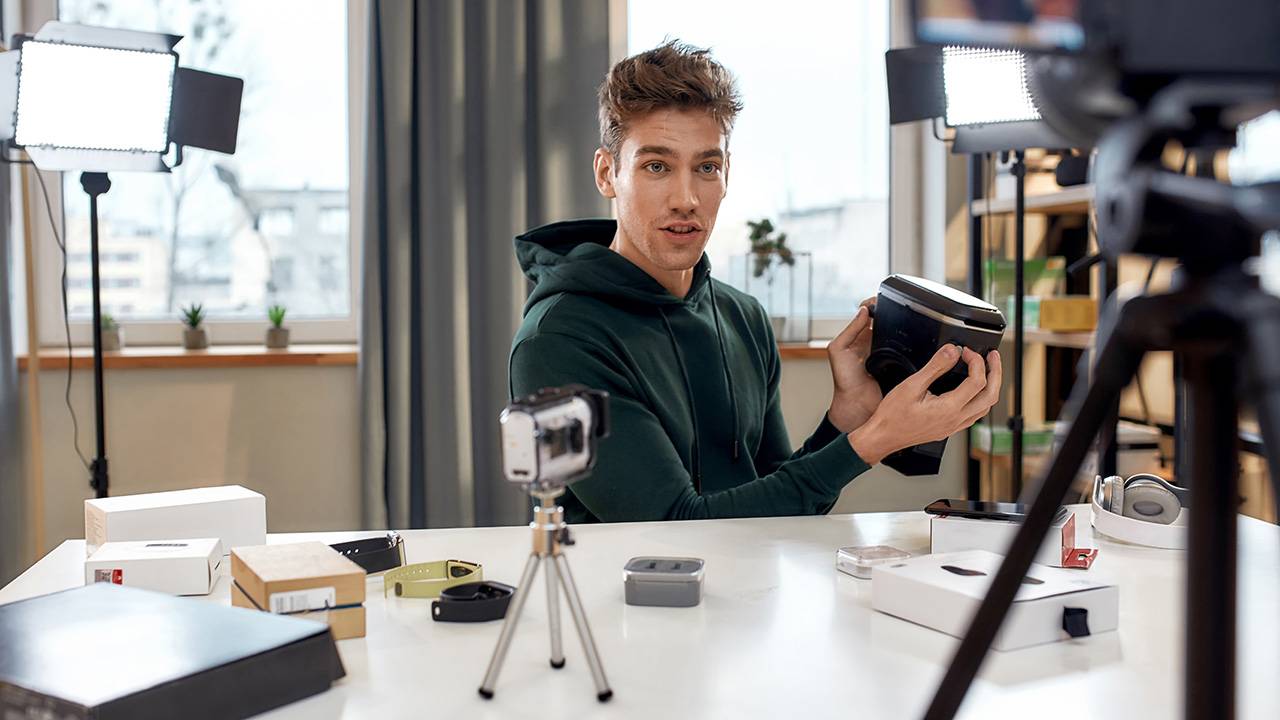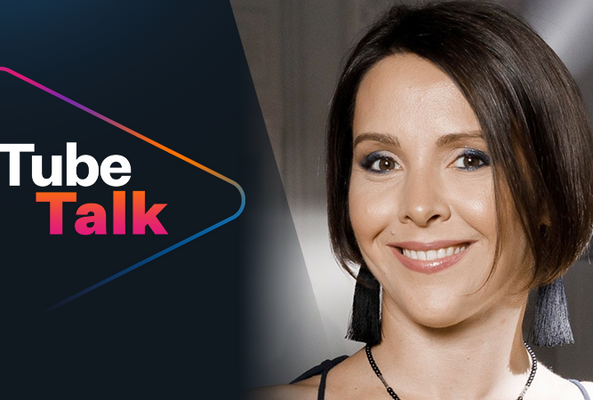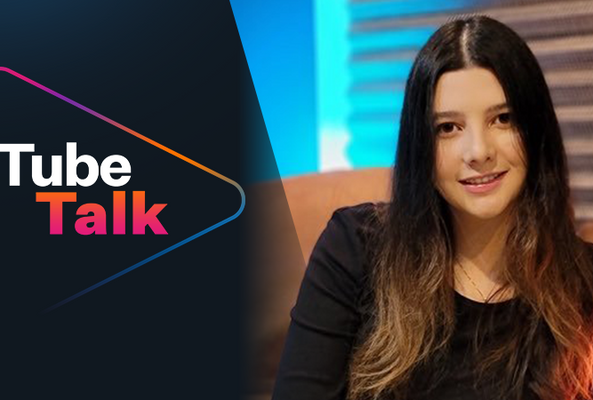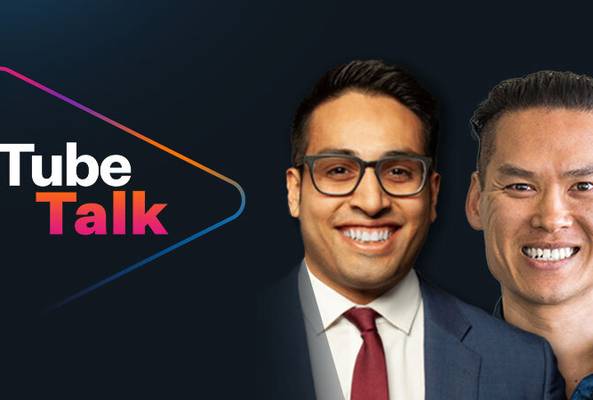Lydia Sweatt is a writer, bookworm, and bass guitar enthusiast. When she goes outside, a bicycle goes with her.
Getting Sponsored by Brands: 5 Things Companies Wish Creators Knew

JUMP TO SECTION:
- 1. Brands Don’t Always Care About Subscriber/Follower Count
- 2. Your Tweets Can Make or Break a Brand Deal
- 3. You Can Be Honest About a Brand and its Products
- 4. Your Email Pitch Has to Be Persuasive
- 5. Sometimes You’re Not the Best Fit for a Campaign. It’s Not Personal.
Every creator wants to know how to get brand deals. They want to know what it’s like to work on a lucrative campaign and why they haven’t reached that magical point. Until it happens, they imagine having an overflowing bank account and plenty of sponsors.
Read More: The Truth About Getting a Brand Deal on YouTube
But not everyone thinks of the other side – what brands wished creators knew. It’s a better approach, especially if you want to discover what makes a brand say, “You’re hired.”

In this episode of TubeTalk, we get that perspective from Colby Hornick, product marketing specialist at TCL Communication. As a public relations expert, Hornick works with influencers to make brand deals happen. Now he's helping creators understand what brands are truly looking for.
If you’re wondering how to get brands to sponsor you, here are five things to know before sending a pitch.
1. Brands Don’t Always Care About Subscriber/Follower Count
Did you know that selling products isn’t the goal of every campaign? Some brands want to raise awareness so people know they exist. They also want to collect content from creators and repurpose it on social media.
Bottom line: There are different campaign types, and brands need different kinds of creators to make them successful.

Someone with 500,000 subscribers can drive awareness, but what about other, more concrete goals? If we’re talking about email sign-ups and purchases, companies need the best creators for those outcomes. And that’s not always a mega influencer.
Plus, brands are cautious when seeking prominent, successful creators.
“No shots intended, but there are plenty of people out there with [lots of followers], and I can tell you that 90% of them are all bots,” Hornick says.
It’s OK to start where you are with the subscribers you have. There will always be brand deals for small YouTubers and other creators.
To reach different campaign goals, brands look for:
- Nano-influencers (1,000-10,000 followers)
- Micro-influencers (10,000-50,000 followers)
- Macro-influencers (100,000-1,000,000 followers)
2. Your Tweets Can Make or Break a Brand Deal
Most people don’t realize, but cringey tweets from the past are easy to find, Hornick says. All it takes is an advanced Twitter search and boom: Everyone knows your worst takes and opinions.
A non-creator doesn’t have to worry as much, but anyone building a brand on YouTube, TikTok or Instagram does. Creators get searched more because brands want to know who they’re sponsoring ahead of time.
“If we’re doing a deep dive on you, and you’re popping off and saying some pretty gnarly stuff – and I don’t mean having political opinions," Hornick says. "It doesn’t matter if you’re left, right, middle. I don’t really care in that regard. But if you’re dropping racist epitaphs and saying some really awful things, then….”
At that point, Hornick fell silent and sucked his teeth against the mic, as if to say, “No more sponsorship.”
3. You Can Be Honest About a Brand and its Products
Brands aren’t perfect, and neither are their products. It’s OK to give your honest review of something, even if you’re getting paid to make the company look good. On YouTube, you are responsible to your audience first and brands second.

Admittedly, not all companies will understand. That’s why partnering with the right brands leads to better sponsorships. Your audience will appreciate you for sharing the truth, and the brand will improve through consumer feedback. Everyone wins.
“I ask for fairness, and I ask for honesty,” Hornick says. “That’s it. I want you to highlight the things we do well, and in fairness, you need to highlight the things we maybe don’t do well – maybe the areas we need to improve – and then be accurate and truthful.”
4. Your Email Pitch Has to Be Persuasive
Public relations specialists get hundreds of emails.
Standing out from the competition takes more than a good subject line. The body of the email has to be persuasive, too, because that’s where you’ll pitch brands.
Hornick sees a lot of pitching mistakes, even for those just seeking products to review:
- Not having a media kit
- Misspelling the brand’s name
- Writing a long, time-consuming email
- Not emailing the right person (find the press center or public relations specialist)
- Not sharing important information, such as who you are, what you do, details about your audience, and your YouTube channel analytics
If you want to get a paid brand sponsorship, there’s even more to convey:
- Ideas around how you’d center the brand in sponsored content
- The value you bring by sharing the brand with your audience
- Examples of past campaigns and how they performed
Read More: 11 Companies Matching YouTubers with Amazing Brand Deals
5. Sometimes You’re Not the Best Fit for a Campaign. It’s Not Personal.
Imagine you’re a tech creator who’s extremely vocal about hating Samsung Galaxy phones. You own plenty of iPhones, and most of your videos are about Apple technology, not Android. What are the chances you’ll get sponsored by Samsung?
If you’re thinking, A pretty small chance, that’s probably correct.
A brand won’t contact you if your messaging doesn’t align with theirs; it just doesn’t make sense. Assuming your audience feels the same as you, the brand would be targeting the wrong consumers.
Of course, Hornick says there are more reasons people don’t get brand deals:
- Their audience isn’t quite “there” yet in size and engagement.
- There are limited samples to give creators for reviews.
- The brand doesn't have the budget to pay certain rates.
No matter what, just keep networking. Show up in YouTube live streams, take the stage in Clubhouse rooms, and join conversations in Twitter Spaces.
After all, getting sponsored comes down to three things:
- Being where brands and their representatives gather
- Proving you can add value to a campaign
- Being likable
You must be visible online to do all those things!


